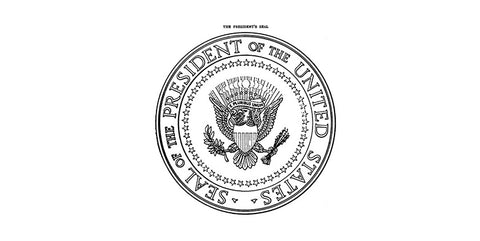____________
LOUISE BOYD
She had been born restless, as though the very stars were pulling at her hair. For her the world was magic. Life would never be what she looked at—it would be about what she could see with her eyes turned inward toward her dreams. Louise Boyd found adventure within books and strange worlds no one had ever seen.
One September midnight when she was five, her mother caught her staring out of the window long after bedtime, humming a haunting little tune to herself.
"What's wrong, Sweetheart—can’t you sleep?"
The little blonde girl bathed in moonlight carried sparks of Orion in her eyes as she pointed upward to the heavens.
"I hear them calling me from out there somewhere—and I can't wait to answer."
Louise adored her brothers, parents and the ferry in Marin County. Marin was known for natural beauty and its sailing and festive soirées.
The ferry crossing between the Hyde Street pier in San Francisco and Sausalito took her on the ride of her life for twenty minutes and it cost only one dollar.
San Francisco was the largest city without a bridge relying as it did on ferry service alone. The water was three hundred seventy feet deep with strong currents, ferocious winds, and blinding fog. Louise craved those ferry rides. Like chocolate.
As a child she thrilled to the adventure of crossing the bay in bad weather for it stirred her blood and kindled within her a strange lust for danger. As she grew older her fearlessness was legend.
In 1852, San Quentin prison had been built in Marin County and its reputation as warehouse for dangerous criminals fueled endless rumors of escaped felons wandering the neighborhood. Of course, it was all nonsense made up by young men to frighten and taunt timid little girls at parties. But, Louise challenged the neighbor’s boys to hike with her to the prison to meet the warden for an interview.
“Maybe, “she suggested, “he will kindly take us on a tour of the facility and show us the gas chamber—or better still, allow us to witness an actual execution.”
The boys had declined her suggestion and the kidding ended. Her legend grew. Louise Boyd was tutored by governesses and attended Miss Murison's School in San Francisco. She did not go to college. Her two brothers suffered from rheumatic fever and died at ages sixteen and seventeen respectively. Although in young adulthood Louise appeared at all the right social events always impeccably dressed, once all her family was gone she made travel the center of her life.
In 1877, land owned by Louise Boyd’s grandfather turned out to be the site of the largest gold strike since the Gold Rush of 1849. The town founded on that site was named after a fellow named Body who died in a blizzard well before a nugget of gold was seen in those parts. The town sported sixty-five saloons serving a population of up to seven thousand bonanza-seeking soldiers of fortune.
Barroom brawls, shootouts, stagecoach holdups, and general mayhem lasted three rip-roaring years before the last gleaming metal nugget was dug out and stamped into coin. The dream ended and the town went bust. Thirty-four million dollars’ worth of gold was enough to assure the Boyds a carefree existence.
Louise and her two brothers, John and Seth, scampered, trotted, and climbed all over their ranch in Oakland Hills. Climbing Mt. Diablo during summer vacation never failed to excite family camaraderie and sibling competition.
Seth and John died only months apart and it was the saddest day of her life. She vowed to live three lives: two plus her own.
Louise traveled the world seeking medical treatment for her parents, exploring and learning about strange societies and peculiar folklore. When her mother and father could no longer travel, she nursed them in their old age.
“What will you do with your life, child—you will be on your own with a fortune in gold and no one who loves you to watch out for your well-being?”
“I’ll go where no woman has ever set foot and build something wonderful and dedicate it to John and Seth.”
Louise snuggled on the edge of the bed showing her parents the little sketch book she always carried with her. Her father and mother gazed curiously at the drawing.
“How did you decide on that—it is very nice—but, I mean—what is it? “
Louise giggled and laid her hand on her father’s cheek.
“It is a monorail and I’ll build it on an exotic planet out there in the stars. It will have a plaque made of gold, dedicated to John and Seth.”
***
Two funerals passed. Then on a winter’s day, standing on the deck of the ferry; bidding good-bye to her childhood home forever; Louise glanced back one last time. At once a zephyr came up out of nowhere and swept back the fog just long enough for a fond glimpse of girlhood and summer dreams, the laughter of boys and innocent times no more.
“Memory is for the past, but hope is for the future.” She whispered aloud.
Louise squared her shoulders and headed off toward a season for dreams—only dreams made real. She held adventures in her heart as her pulse now quickened and her life passed into her hands; twenty-three, rich and unstoppable.
She reached into her rucksack and pulled out her father’s favorite book of poems and read aloud the last line of Invictus—a poem he loved so much:
It matters not how strait the gate,
How charged with punishments the scroll.
I am the master of my fate:
I am the captain of my soul.
__________________
End Chapter Four
https://docs.google.com/document/d/1rkMcA8yNbB63cSqx7wrBkkRL0Ia9QZmTTfT3lklCoyA/edit?usp=sharing

